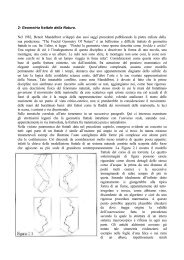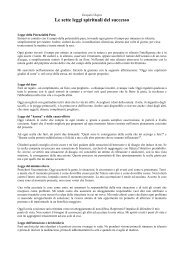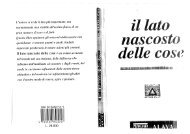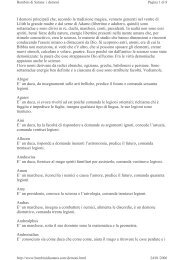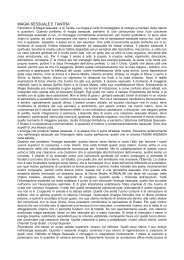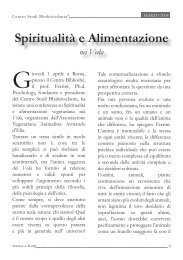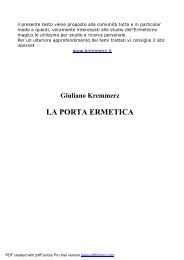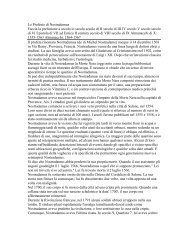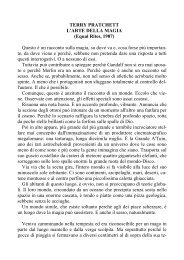180 ~ TALIBANdeliver the Taliban and obtain a temporary Afghan concensus in theold-fashioned way by reconquering the country? Or was it preferable forthe USA to engage in peacemaking and bring the Afghan ethnic groupsand factions together to form a broad-based government, which mightensure lasting stability? Although Washington's broad-brush policy wasto support a widely based, multi-ethnic government in Kabul, the USAfor a time believed in the Taliban and when it ceased to do so, it was notwilling to rein in Pakistan and Saudi Arabia.Although there was no CIA budget for providing arms and ammunitionto the Taliban and Unocal did not channel military support to the Taliban,the USA did support the Taliban through its traditional allies Pakistanand Saudi Arabia, accepting their provision of arms and funding tothe Taliban. 'The US acquiesced in supporting the Taliban because ofour links to the Pakistan and Saudi governments who backed them. Butwe no longer do so and we have told them categorically that we need asettlement,' the highest ranking US diplomat dealing with Afghanistansaid in 1998. 23 In Washington it was perhaps not so much a covert policyas no policy. A covert policy involves planning, funding and takingdecisions, but there was no such process taking place at the highest levelsin Washington on Afghanistan.Washington's change of heart over the Taliban in late 1997 also arosebecause of the deteriorating political and economic crisis in Pakistan.US officials began to voice fears that the drugs, terrorism and Islamicfundamentalist threat which the Taliban posed could overwhelm its oldand now decidedly fragile ally Pakistan. The USA warned Pakistan of theincreasing dangers it faced, but became frustrated with the ISI's refusal topressurize the Taliban to be more flexible on the political and genderfronts.The first public expression of the US change was made by Secretary ofState Madeleine Albright when she visited Islamabad in November 1997.On the steps of Pakistan's Foreign Office she called the Taliban 'despicable'for their gender policies. Inside, she warned Pakistani officials thatPakistan was becoming isolated in Central Asia — which weakened USleverage in the region. But the Sharif regime remained at odds with itself,wanting to become an energy conduit for Central Asia, wanting peace inAfghanistan but insisting this would best be achieved by a Taliban victory.Pakistan could not have a Taliban victory, access to Central Asia,friendship with Iran and an end to Bin Laden-style terrorism, all at thesame time. It was a self-defeating, deluded and contradictory policy whichPakistan refused even to acknowledge.The shift in US policy was also because of major changes in Washington.The dour, hapless Warren Christopher was replaced by Albrightas Secretary of State in early 1997. Her own experiences as a child inROMANCING THE TALIBAN 2: 1997-99 ~ 181Central Europe ensured that human rights would figure prominently onher agenda. A new team of US diplomats began to deal with Afghanistanin both Washington and Islamabad and the new US Assistant Secretaryfor South Asia, Karl Inderfurth, knew Afghanistan as a former journalistand was much closer to Albright than Raphel was to Christopher.Albright's private criticism of Pakistan's policies and public criticism ofthe Taliban was followed up by the visit of the US Ambassador to theUN, Bill Richardson, to Islamabad and Kabul in April 1998. But withPakistan exerting no real pressure on the Taliban, except advising themto give Richardson full protocol, the trip turned into little more than apublic relations exercise. Richardson's agreements with the Taliban wererescinded hours later by Mullah Omar. The only positive spin from thetrip was that it convinced Iran that the USA now saw Tehran as a dialoguepartner in future Afghan peace talks, thereby reducing US-Iraniantensions over Afghanistan.As with Raphel's initiatives in 1996, the USA appeared to be dipping itsfingers into the Afghan quagmire, but wanted no real responsibility. TheUSA wished to avoid taking sides or getting involved in the nuts and boltsof peace-making. The Pakistanis realized this weakness and tried to negateUS pressure. Foreign Minister Gohar Ayub blasted the Americans justbefore Richardson arrived. 'The Americans are thinking of putting puppetsthere [in Kabul]. These are people who hover around in Pakistan from onecocktail party to the other, they do not cut much ice because they have nosupport in Afghanistan,' Ayub said on a visit to Tokyo. 24US tensions with Pakistan increased substantially after Bin Laden'sattacks against US Embassies in Africa in August 1998. The fact that theISI had helped introduce Bin Laden to the Taliban in 1996 and hadmaintained contacts with him, but now declined to help the Americanscatch him, created major difficulties in the relationship. The Americantone became much harsher. 'There appears to be a pervasive and dangerousinterplay between the politics of Pakistan and the turmoil insideAfghanistan. With the emergence of the Taliban there is growing reasonto fear that militant extremism, obscurantism and sectarianism will infectsurrounding countries. None of those countries has more to lose thanPakistan if "Talibanization" were to spread further,' said US Deputy Secretaryof State Strobe Talbott in Janury 1999. 25But the Americans were not prepared to publicly criticize Saudi supportto the Taliban publicly, even though they privately urged Saudi Arabiato use its influence on the Taliban to deliver Bin Laden. Even US Congressmenwere now raising the self-defeating contradictions in US policy.'I have called into question whether or not this administration has acovert policy that has empowered the Taliban and enabled this brutalmovement to hold on to power,' said Congressman Dana Rohrabacher in
182 ~ TALIBANApril 1999. 'The US has a very close relationship with Saudi Arabia andPakistan, but unfortunately, instead of providing leadership, we are lettingthem lead our policy,' he said. 26The problem for Pakistan was that Washington had demonized BinLaden to such an extent that he had become a hero for many Muslims,particularly in Pakistan. US policy was again a one-track agenda, solelyfocused on getting Bin Laden, rather than tackling the wider problems ofAfghanistan-based terrorism and peace-making. Washington appeared tohave a Bin Laden policy but not an Afghanistan policy. From supportingthe Taliban the USA had now moved to the other extreme of rejectingthem completely.The US rejection of the Taliban was largely because of the pressureexerted by the feminist movement at home. Afghan women activists suchas Zieba Shorish-Shamley had persuaded the Feminist Majority to spearheada signature campaign to mobilize support for Afghan women andforce Clinton to take a tougher stance against the Taliban. Three hundredwomen's groups, trade unions and human rights groups signed up. Thecampaign got a major propaganda boost when Mavis Leno, the wife ofcomedian Jay Leno pledged US$100,000 to it. 'The US bears someresponsibility for the conditions of women in Afghanistan. For years ourcountry provided weapons to the Mujaheddin groups to fight the Soviets,'Ms Leno told a Congressional hearing in March 1998. 27With Leno's help, the Feminist Majority organized a massive starstuddedparty after the 1999 Oscars to honour Afghan women. 'The Taliban'swar on women has become the latest cause celebre in Hollywood.Tibet is out. Afghanistan is in,' wrote the Washington Post. 28 As a celebrityin a celebrity-dominated culture Leno and her opinions went far. HillaryClinton, anxious to secure feminist support for her future political careerweighed in with statement after statement condemning the Taliban.'When women are savagely beaten by so-called religious police for notbeing fully covered or for making noises while they walk, we know thatis not just the physical beating that is the objective. It is the destructionof the spirit of these women,' said Mrs Clinton in a speech in 1999. 29 USpolicy appeared to have come full circle, from unconditionally acceptingthe Taliban to unconditionally rejecting them.14MASTER OR VICTIM:PAKISTAN'S AFGHAN WARIn the last days of June 1998, there was pandemonium in Pakistan'sFinance and Foreign Ministries. Senior bureaucrats scuttled betweenthe two ministries and the Prime Minister's Secretariat with bulgingbriefcases full of files that needed signatures from various ministers. In afew days on 30 June the 1997/8 financial year expired and the new financialyear began. Every ministry was trying to use up its funds for thepresent year and procure higher allocations for the coming year from theFinance Ministry. A few weeks earlier (28 May) Pakistan had tested sixnuclear devices following India's tests and the West had slapped punitivesanctions on both countries, creating a major foreign currency crisis forPakistan and worsening the deep recession that had gripped the economysince 1996.Nevertheless, on 28 June the cash-strapped Finance Ministry authorized300 million rupees (US$6 million) in salaries - for the Taliban administrationin Kabul. The allocation would allow the Foreign Ministry todispense 50 million rupees every month for the next six months to paythe salaries of Afghanistan's rulers. The Foreign Ministry needed to hidethis money in its own budget and that of other ministries, so that it wouldnot appear on the 1998/9 budget record and be kept away from the pryingeyes of international donors, who were demanding massive cuts in governmentspending to salvage the crisis-hit economy.In 1997/8 Pakistan provided the Taliban with an estimated US$30million in aid. 1 This included 600,000 tons of wheat, diesel, petroleumand kerosene fuel which was partly paid for by Saudi Arabia, arms andammunition, ariel bombs, maintenance and spare parts for its Soviet-eramilitary equipment such as tanks and heavy artillery, repairs and mainten-
- Page 1 and 2:
YALE NOTA BENE"The broader storyher
- Page 3 and 4:
TalibanMilitant Islam,Oil and Funda
- Page 5 and 6:
Vi ~ CONTENTSChapter 8A Vanished Ge
- Page 7 and 8:
AFGHANISTAN•^ UZBEKISTAN J TAJIKI
- Page 9 and 10:
2 ~ TALIBANaccounts for some 40 per
- Page 11 and 12:
"6 ~ TALIBANgas riches of landlocke
- Page 13 and 14:
10 ~ TALIBANgious mix that was to m
- Page 15 and 16:
Part 1History of theTaliban Movemen
- Page 17 and 18:
18 ~ ISLAM OIL AND THE NEW GREAT GA
- Page 19 and 20:
22 ~ ISLAM OIL AND THE NEW GREAT GA
- Page 21 and 22:
26 ~ ISLAM OIL AND THE NEW GREAT GA
- Page 23 and 24:
30 ~ ISLAM OIL AND THE NEW GREAT GA
- Page 25 and 26:
34 TALIBANKabul- Hikmetyar had alli
- Page 27 and 28:
38 ~ TALIBANrHERAT 1995: GOD'S INVI
- Page 29 and 30:
42 ~ TALIBANdo manage to take Kabul
- Page 31 and 32:
J46 ~ TALIBANgreater weight to UN e
- Page 33 and 34:
50 ~ TALIBANas they hung from steel
- Page 35 and 36:
54 ~ TALIBANthey would help rearm t
- Page 37 and 38:
58 TALIBANGul Mohammed Pahlawan, Gh
- Page 39 and 40:
62 TALIBAN2,500 Taliban, who had re
- Page 41 and 42:
66 TALIBANshould throw all aid agen
- Page 43 and 44:
70 ~ TALIBANyears of battle and hel
- Page 45 and 46:
74 ~ TALIBANThousands of Hazaras we
- Page 47 and 48: 78 TALIBANhas become a plague,' sai
- Page 49 and 50: NEW STYLE FUNDAMENTALISM OF THE TAL
- Page 51 and 52: 86 TALIBANsity students - Hikmetyar
- Page 53 and 54: 90 TALIBANSharia was heavily influe
- Page 55 and 56: 94 TALIBANinflamed the debate in th
- Page 57 and 58: 98 TALIBANizing factor of Islam, it
- Page 59 and 60: 102 TALIBANadministrations made the
- Page 61 and 62: 106 ~ TAUBANfrom working, but it no
- Page 63 and 64: TALIBANUniversity, she held down a
- Page 65 and 66: 114 TALIBAN A VANISHED GENDER 115Ta
- Page 67 and 68: 118 TALIBANUS$1,300 - a small fortu
- Page 69 and 70: 122 TALIBANper cent of the total Pa
- Page 71 and 72: 126 TALIBANequipment, no electricit
- Page 73 and 74: 130 ~ TALIBANfight with the Mujahed
- Page 75 and 76: 134TALIBANAugust 1996 noted that Bi
- Page 77 and 78: 138 ~ TALIBANwho were using the Kho
- Page 79 and 80: 11DICTATORS AND OILBARONS: THE TALI
- Page 81 and 82: 146 TALIBAN DICTATORS AND OIL BARON
- Page 83 and 84: 150 — TALIBANgrowth of beards and
- Page 85 and 86: 154TALIBAN1998 when international o
- Page 87 and 88: 158 ~ TALIBANaround Afghanistan? Af
- Page 89 and 90: 162 TALIBAN ROMANCING THE TALIBAN 1
- Page 91 and 92: 166 TALIBAN ROMANCING THE TALIBAN 1
- Page 93 and 94: ROMANCING THE TALIBAN 2: 1997-99 17
- Page 95 and 96: 174 — TALIBANnon-Russian pipeline
- Page 97: 178 — TALIBANROMANCING THE TALIBA
- Page 101 and 102: 186 ~ TALIBANters or the transport
- Page 103 and 104: 190 ~ TALIBANThis Wild West of free
- Page 105 and 106: 194 ~ TALIBANgovernance. Pakistani
- Page 107 and 108: 198 TALIBAN SHIA VERSUS SUNNI: IRAN
- Page 109 and 110: 202 TALIBAN SHIA VERSUS SUNNI: IRAN
- Page 111 and 112: 206 — TALIBANin Afghanistan - to
- Page 113 and 114: 210 — TALIBANand antagonism. The
- Page 115 and 116: 214 ~ TALIBANdrawn since 1996 - a P
- Page 117 and 118: 218 ~ TALIBANated and severely puni
- Page 119 and 120: Origins of Members of the Taliban M
- Page 121 and 122: APPENDIX 3 ~ 227Appendix 3A CHRONOL
- Page 123 and 124: 230 ~ TALIBANgraves near Shebarghan
- Page 125 and 126: 234 ~ TALIBAN8 June. US FBI places
- Page 127 and 128: 238 ~ TALIBAN1995 January16 MarchAp
- Page 129 and 130: 242 ~ TALIBANJune21 August10 Septem
- Page 131 and 132: 246 ~ TALIBANDupree, Nancy Hatch, A
- Page 133 and 134: 250 ~ NOTESChapter 31 Interview wit
- Page 135 and 136: 254 ~ NOTESmuddin, Religious Police
- Page 137 and 138: 258 NOTES13. The Japanese company M
- Page 139 and 140: 262 ~ NOTES28. Waxman, Sharon, 'A c
- Page 141 and 142: Abbas, Mulla Mohammed 22,61,100Abda
- Page 143 and 144: INDEX - 270Hazaras (continued)burea
- Page 145 and 146: INDEX ~ 274nF»r\/FaliViar» milita
- Page 147: INDEX ~ 278Talibans (continued)Sunn




